digital rights
Filter by...
-
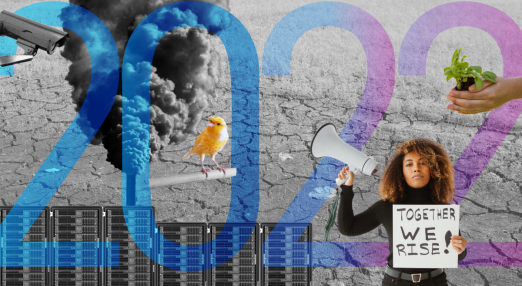
Looking back at 2022: Protecting and advancing digital rights in times of crisis
In moments where we should be urgently tackling the climate crisis and working towards peace and justice worldwide, state funds and efforts seem to reinforce militarisation, fuel the climate crises and injustice. In response to increased surveillance and control practices coming from governments and private companies, EDRi members and partners have put forward a vision in which people live with dignity and vitality. What have we collectively achieved in 2022?
Read more
-

Everyone is on Mastodon now, but why?
Millions of people and organisations are flocking to Mastodon in the wake of Elon Musk’s Twitter takeover. EDRi is among those who recently started using the decentralised and free social network. What does Mastodon do better, and why does it get digital rights groups all excited?
Read more
-

Mid-point EDRi strategy review: impact and adjustments in a changing field
In April 2020, during the early months of the Covid-19 pandemic in Europe, EDRi adopted its first network multi-annual strategy for the years 2020-2024. At the mid-term of the strategy implementation, what have we learned?
Read more
-
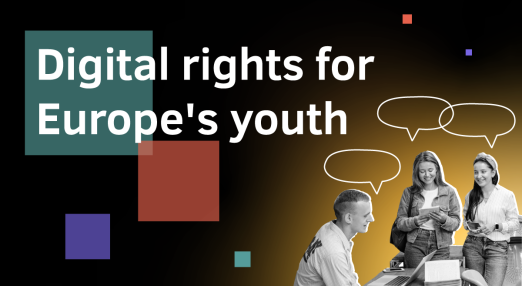
Digital rights for Europe’s youth
The biggest youth platform in the world is joining the Platform Power Coalition for a Digital Services Act that empowers young people. European Youth Forum will bring youth voices to the coalition, vindicating that digital rights are youth rights. Young people should be able to enjoy their digital environment without fearing privacy violations, discrimination or manipulation. Here is what you need to know about this alliance.
Read more
-
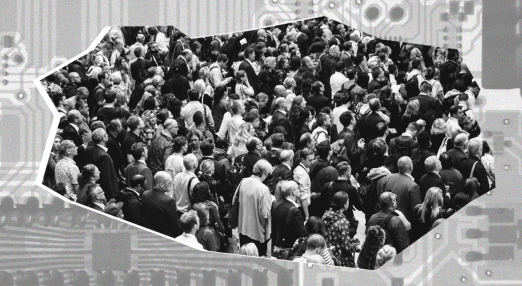
Promoting human rights in the digital era
Digital technologies are part of everyday life, but we don’t know much about how they impact our rights. A Czech-Norwegian project aims to change this.
Read more
-

Declaration of Digital Principles: Towards a digital pillar of the EU?
On 26 January the European Commission proposed a Declaration on European Digital Rights and Principles. The Declaration will take the form of a joint solemn declaration to be signed by the European Parliament, the Council, and the Commission.
Read more
-
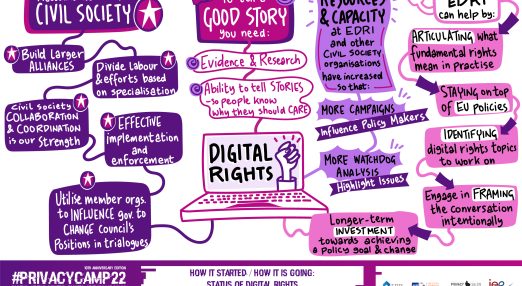
How it started, how it’s going: Halfway through the current European Commission’s legislative term
In January 2022, EDRi held a panel at its annual flagship event Privacy Camp to discuss the EU’s current legislative term and what to expect by the next EU elections in terms of digital rights.
Read more
-

DMA: European Parliament takes first steps towards limiting gatekeeper power and providing real choices for people
Today, the European Parliament has approved its position on the Digital Markets Act (DMA). While unfortunately, it scales down the DMA scope by limiting who will be considered a gatekeeper, the Parliament position adds a number of notable improvements from a digital rights perspective that help challenge digital gatekeepers’ overwhelming power.
Read more
-

2021: Looking back at digital rights in the year of resilience
We started 2021, hoping to leave the tremendously challenging year of 2020 behind. The Covid-19 pandemic has had a devastating impact on our societies, causing unprecedented harm to people and economies. If 2020 was the year of the pandemic shock, 2021 was the year of resilience. We had to learn to live in a constant uncertainty of what it would take to keep defending human rights: Could we work and walk down the streets without being constantly surveilled? Would efforts to tackle disinformation distort legitimate content, or would they bring down Big Tech instead? Will 2022 be 2021 2.0?
Read more
-
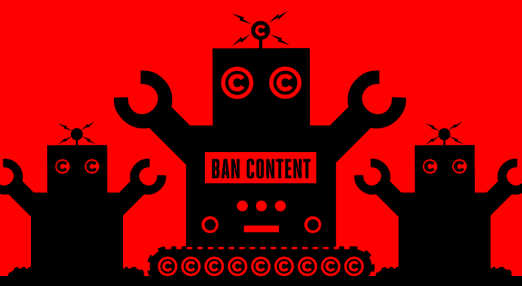
European Parliament’s plans of a Digital Services Act threaten internet freedoms
The EU's Digital Services Act is a chance to preserve what works and to fix what is broken. EFF and other civil society groups have advocated for new rules that protect fundamental rights online, while formulating a bold vision to address today's most pressing challenges. However, while the initial proposal by the EU Commission got several things right, the EU Parliament is toying with the idea of introducing a new filternet, made in Europe. Some politicians believe that any active platform should potentially be held liable for the communications of its users and they trust that algorithmic filters can do the trick to swiftly remove illegal content
Read more
-

Creating Conditions for a Decolonised Digital Rights Field
Since 2019, DFF and EDRi have been working to initiate a decolonising process for the digital rights field. Reflecting on the increased challenges to our digital rights, we realised how imperative it is that the field truly reflects everyone in European society. This means improving representation in the digital rights field, but more crucially undoing the power structures preventing us from protecting digital rights for everybody.
Read more
-

Czech Big Brother Awards awards worst privacy culprits
EDRi's member IuRe has recognised the most intrusive authorities, companies and technologies for the sixteenth time in a row at the Big Brother Awards. This year's awards were closely linked to the pandemic. Many nominations emerged as a part of the fight against COVID-19, limiting privacy in order to limit the spread of the virus.
Read more
